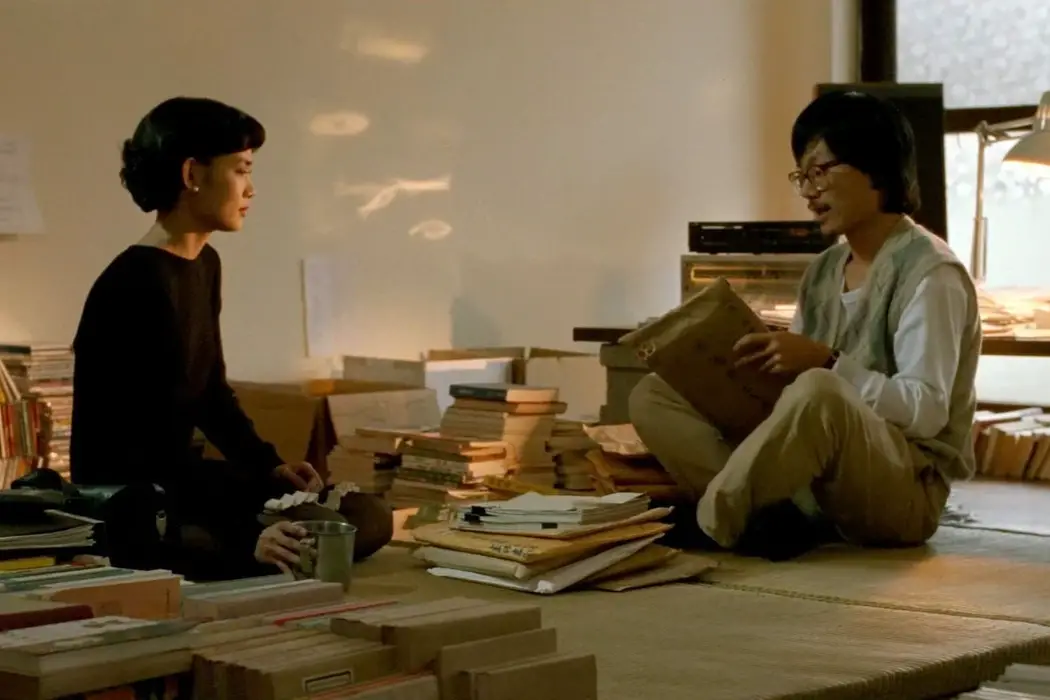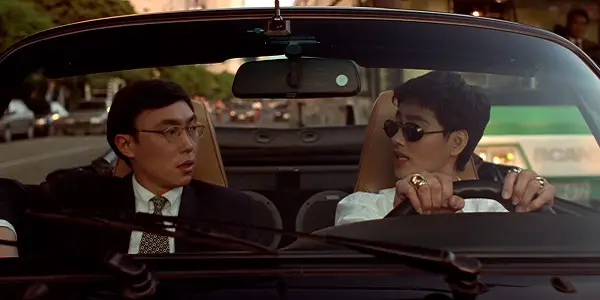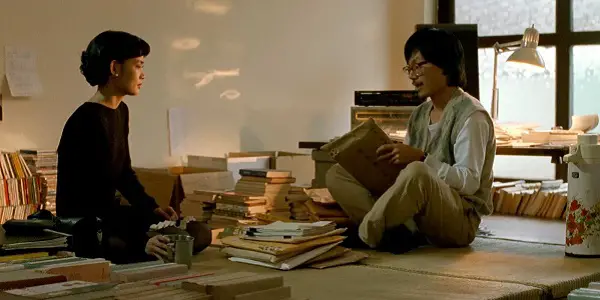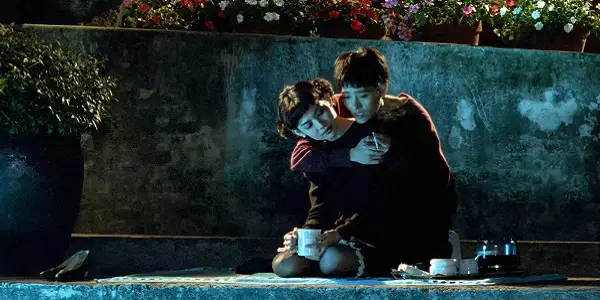A CONFUCIAN CONFUSION: Coupling and Capitalism, Edward Yang-Style
by Lee Jutton
December 22, 2023

Lee Jutton
Lee Jutton has directed short films starring a killer toaster,…
Edward Yang directed only seven feature films before his untimely death from colon cancer in 2007, yet the relatively small size of his filmography—which also includes a segment of the omnibus In Our Time that served as his directorial debut—should not belie his legacy as one of the most important filmmakers of the Taiwan New Wave. Films like Taipei Story, A Brighter Summer Day, and Yi Yi are repeatedly revisited by audiences who remain enraptured by Yang’s intricate storytelling, and the way he was able to capture both the intimacy of human relationships and the expansive changes experienced by Taiwan across the decades.
At first glance, A Confucian Confusion might seem like an oddball film in Yang’s oeuvre. Originally released in 1994 as Yang’s follow-up to the sprawling drama A Brighter Summer Day, it’s a needle-sharp satire of life in a city increasingly in the thrall of capitalism and a portrait of the various young people who are struggling to find meaning in it all. But as the film unfolds, it becomes quite clear that A Confucian Confusion is quintessentially Yang, from the keenly sensitive glance he directs toward fading romances to the way he portrays the rapidly evolving city of Taipei—a place that can bring people together just as easily as it can tear them apart.
The Young and the Restless
A Confucian Confusion is centered on a tangled web of young professionals in Taipei who are all somehow connected: either via work, love, or a messy combination of the two. Molly (Ni Shu-Chun) runs an advertising agency with an iron fist, though the company would be on the verge of going under if it weren’t for a financial infusion from her rich fiancé, Akeem (Chen Yi-Wen). Akeem was originally engaged to Molly’s sister (Chen Li-Mei), a talk show host, but she broke it off when she fell in love with a novelist (Hung Hung); said novelist has recently written a book about Confucius returning to modern society and being displeased with what he finds.
The Meaning of Life
Yang throws us into the…well, confusion of A Confucian Confusion without a great deal of exposition. We learn about these characters by watching them in the moment, such as when Molly fires Feng in a fit of rage, Qiqi and Ming have a screaming fight in the back of a cab, and Larry attempts to tiptoe around Molly’s inquisitive questions during a car ride together. Indeed, there are a lot of car rides in A Confucian Confusion and a lot of pivotal conversations that take place during them; our characters are almost always in motion, moving through the bustling city and their busy lives without thinking long enough about what they’re going to do next. It’s when they finally do pause for reflection that they realize how empty their lives currently are, and it’s when they have encounters with people who are new to them (or, at the very least, are being seen by them in a whole new way) that they start to realize what it is they need to fill the void. This tends to be romantic passion (as opposed to marriages arranged like business transactions) and fulfilling work (as opposed to jobs so mind-numbingly exhausting that you barely have time to consider how much of it you’re wasting). And really, who can blame them?

Conclusion
While it may not have the same lingering emotional impact on the viewer that his better-known films are capable of, A Confucian Confusion shouldn’t be dismissed as minor Yang—not when it provides such a wry and witty glimpse at what it’s like to be young and lost in a world changing too fast for you to keep up. The new 4K restoration of A Confucian Confusion begins screening December 24, 2023, at Film at Lincoln Center as part of Desire/Expectations: The Films of Edward Yang.Does content like this matter to you?
Become a Member and support film journalism. Unlock access to all of Film Inquiry`s great articles. Join a community of like-minded readers who are passionate about cinema - get access to our private members Network, give back to independent filmmakers, and more.
Tags
Lee Jutton
Lee Jutton has directed short films starring a killer toaster, a killer Christmas tree, and a not-killer leopard. Her writing has appeared in publications such as Film School Rejects, Bitch: A Feminist Response to Pop Culture, Bitch Flicks, TV Fanatic, and Just Press Play. When not watching, making, or writing about films, she can usually be found on Twitter obsessing over soccer, BTS, and her cat.













